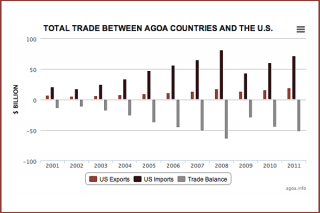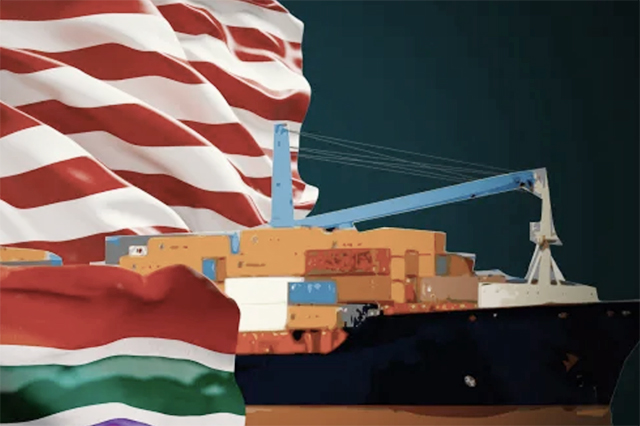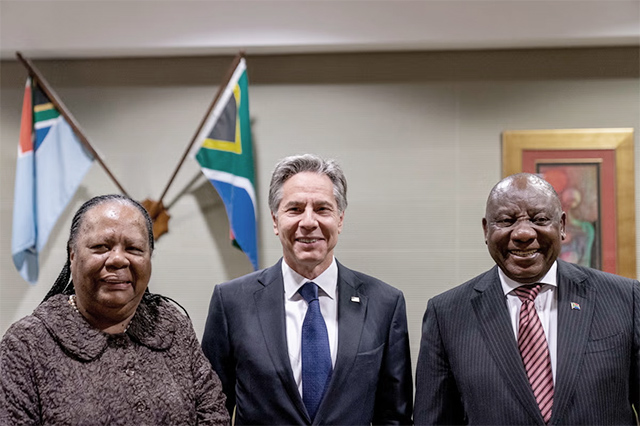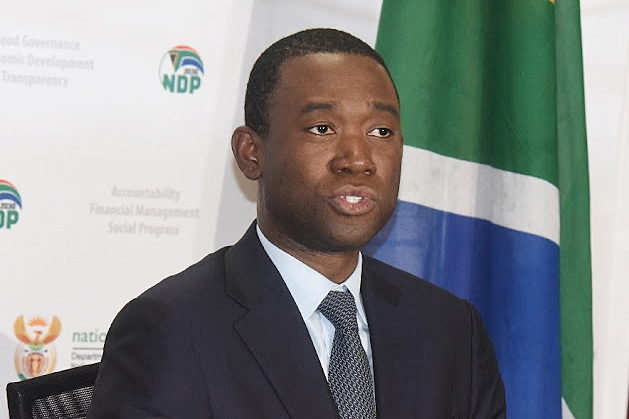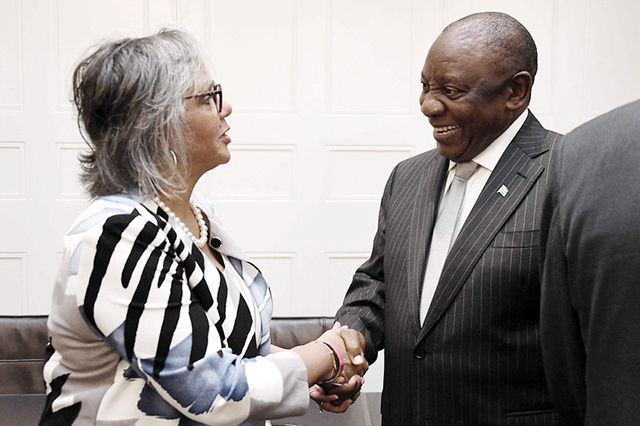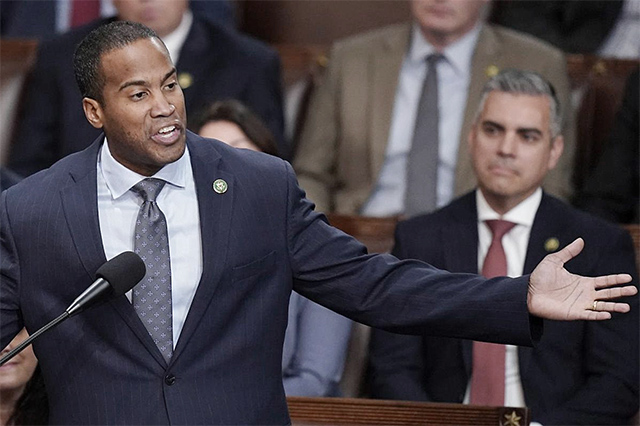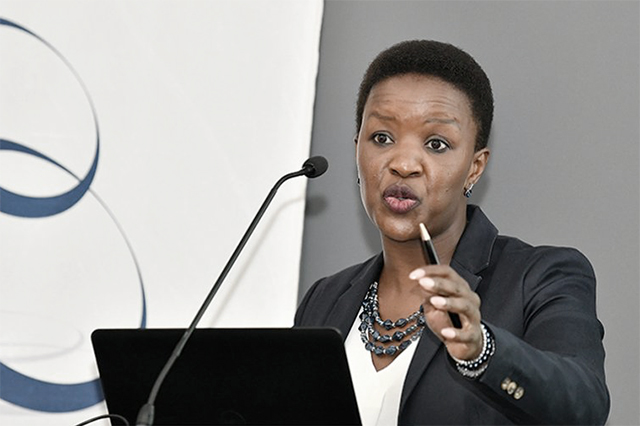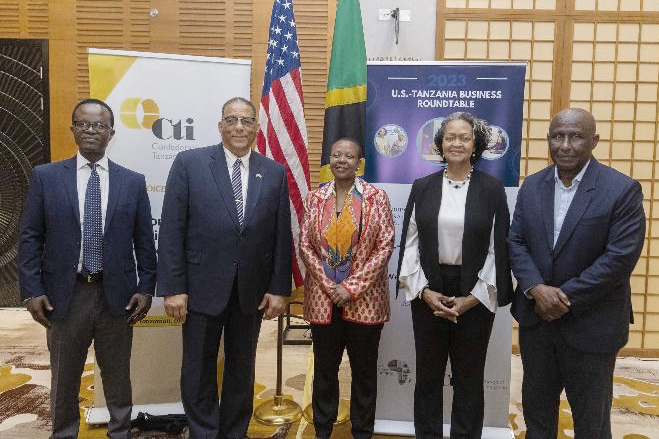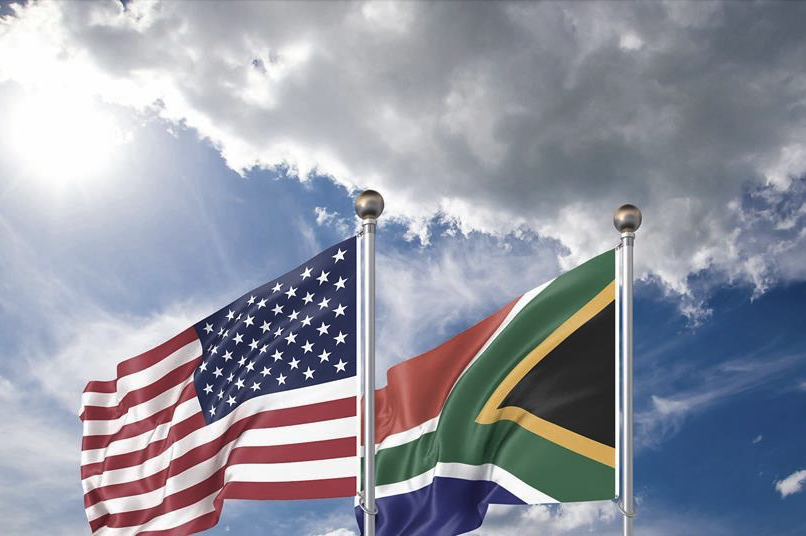Experts Weekly: What next for US-Africa relations?
Today, US President Barack Obama begins a weeklong trip to Africa where he will visit Senegal, South Africa and Tanzania. His mission, according to US officials, is to push US investment and help strengthen Africa's democratic institutions.
US-Africa relations under Obama have been relatively low-key. This will be only the president’s second visit to the continent, and while the likes of Brazil, India and China have been increasingly active in Africa over the past few years, US engagement has been notably restrained.
We took the opportunity of Obama’s visit to the continent to ask a panel of experts:
"In what direction are US-Africa relations heading?"
Thomas Tieku, author of US-Africa Relations in the Age of Obama, and lecturer at the University of Toronto
Africa-US relations seem to be heading back in the direction of the Cold War days. The choice of Senegal, Tanzania, and South Africa for prime time visits appears designed to position the US to compete with China for African influence. The subtext of statements from Washington betrays this Cold War-like mindset; Deputy National Security Advisor Ben Rhodes, for example, claimed the trip is important because other countries are “getting in the game”.
The public image of the trip will be dominated by symbolic politics such as carefully choreographed visits to slave sites and Robben Island where Nelson Mandela was imprisoned for 18 years. But the real business will be devoted to building strategic partnerships to undercut Chinese influence in Africa. Thus, the widely publicised claim that good governance was the main criterion for selecting the three states to be visited is a mere smoke screen. Botswana, Cape Verde, or Mauritius would have been included in the trip if the Obama administration wanted to showcase apostles of good governance.
The trip will set the stage for Cold War Games 2.0, which will continue to be played in the coming years unless there is a change of mindset in Washington or decline of Chinese interests in Africa. In an ideal world, a visit to Africa by the first African-American president would be a vehicle to promote innovations in Africa, encourage Pan-African solutions and ownership, support the training of the next generation of African leaders, and act as a platform for the president to show leadership in the campaign to end illicit financial flows and harmful US policies such as farm subsidies. A trip reflecting these policy objectives would begin in an undisputed African democratic state and end with a major policy speech at the headquarters of the African Union. Unfortunately for Africa, Obama’s planned trip is not that.
Mwangi Kimenyi, Senior Fellow and Director of the Africa Growth Initiative at the Brookings Institution, and advisory board member of the School of Economics, University of Nairobi
To a large extent, the commercial relations between the US and Africa have been defined by the Africa Growth and Opportunity Act (AGOA) that was signed into law by President Bill Clinton in 2000. AGOA provides duty- and quota-free access of over 6,000 products from eligible sub-Saharan African countries to the US market. To date, although oil and energy exports dominate AGOA exports, there has been an increase in non-oil exports such as textiles and even manufactured goods, especially from South Africa. AGOA has contributed to some extent to the diversification of African economies and created jobs, especially for women. But the full promise of AGOA has not been realised. Expectations that the enactment of AGOA would lead to a marked increase in American investment flows that would spur diversification and growth have not been met.
The American approach to dealing with Africa appears to be informed by the outdated paradigm that Africa is a hopeless continent rather than one that offers many profitable opportunities. Since other countries see Africa as the next growth frontier, they have accelerated their investments on the continent. New players such as China are increasingly entering the African market not in search of natural resources but also transformative investments that are boosting economic diversification. The US’ private sector has not kept pace with the emerging economies as far as investments in Africa are concerned.
With AGOA expiring in 2015, discussions on post-2015 US-Africa relations have gained momentum. One key recommendation is for appropriate policies to encourage and support American investments in Africa. America needs a strategy to engage with Africa especially in regards to private investments that can help close the large infrastructure deficit and boost regional integration. Without a clear strategy that boosts private investment in Africa, the US will end up a marginal player in an increasingly important continent.
Cobus van Staden, co-founder of the China-Africa Project and Postdoctoral Research Fellow, University of Johannesburg
Yesterday afternoon I was speaking with a friend living in South Africa’s capital, Pretoria. As we were discussing the series finale of Mad Men, her baby was woken up by helicopters thundering low over the city. Later she texted me that, according to radio reports, these were US Secret Service helicopters, preparing for the arrival of President Barack Obama.
In a way, this sums up the ambivalence underlying the current US-Africa relationship. Increasingly, the US has two faces in Africa: its pop culture influence and its military might. Jay-Z or the drone. Perhaps more significant is how its presence is not typified – the US is not seen as an investor, an importer or a manufacturer. Those roles are occupied by Brazil, Turkey, India, and particularly, by China. This means that the US has come to occupy a symbolic realm. It is the sender of messages from far away – pleasant ones via music and TV, or scary rumours of lily-pad bases. Meanwhile, the TV sets and mobile phones used to circulate these messages are coming from China. In certain cases, they are even being manufactured in African factories owned by Chinese conglomerates.
The relationship between Africans and Chinese is far from smooth, but the friction emanates from the physical presence of Chinese people and investment in Africa. It might be difficult, but it’s real. To my mind, the US increasingly lacks a similar real world presence in Africa. Yet, because of its enormous cultural influence, this absence stings. On the China-Africa Project, a web community I help to administer, this resentment is palpable. “We don’t need Obama here in Nigeria”, wrote one commenter – in response to the fact that Nigeria wasn’t on his itinerary anyway. My fear is that US-Africa relations will increasingly be typified by this mix of absence and resentment.
Witney Schneidman, non-resident fellow at the Africa Growth Initiative, and former US deputy assistant secretary of state for African affairs
President Obama’s visit to Senegal, South Africa and Tanzania is an effort to reorient US relations with the continent. Traditionally, the American relationship with Africa has been about aid and donor assistance. While this remains important in some areas, commercial engagement has become a greater priority. As a result, President Obama will make trade and investment a centrepiece of this trip in an effort to encourage American companies to become more active in one of the last and fastest growing emerging markets. With China having eclipsed the US in 2009 as Africa’s largest trading partner, and with the EU, Brazil, India, and other countries aggressively pursuing commercial opportunities on the continent, the US is lagging behind.
In an effort to position the US, President Obama will adopt a regional focus on at least two of the stops. During his visit to Senegal, Obama will meet with judicial leaders from throughout West Africa. This will afford the President an opportunity to emphasise the importance of the rule of law to commerce and democratic governance. In Tanzania, President Obama will launch a regional trade initiative designed to highlight the East African market of 150 million people. He will also unveil an African power initiative to address the fact that more than 65% of those living on the continent do not have access to a reliable power source. To further underscore the importance of the African market and the opportunities for American businesses, President Obama will address a meeting of US and African CEOs while in Dar es Salaam.
Another priority for President Obama is Africa’s youth. On a continent of nearly 1 billion, where the median age is 17 and there is an emerging middle class of some 350 million, this focus is well placed. The administration will roll out the Young African Leaders Initiative in South Africa which is platform for American companies, universities and NGOs to engage and mentor up to 1,000 of Africa’s next generation of leaders.
With three years left in his administration, this visit has the potential to enhance American competitiveness and renew US priorities in Africa. There is also the imperative of rebalancing the US relationship so that issues of governance, business and economic development are not marginalised by a concern over regional security issues.
Lesley Anne Warner, Africa analyst and blogger at Lesley on Africa
President Obama's first trip to Africa as president in the summer of 2009 was notable for two reasons. Aside from being the first visit by an American president of African descent, the President eschewed the templates of his predecessors not only by visiting the continent early in his first term, but also by including Ghana as part of a multi-region trip to Russia and the G8 summit in Italy. The message at that time was that Africa is not ‘a world apart, but a fundamental part of our interconnected world’, to paraphrase the President's speech to the Ghanaian parliament.
Four years hence, the message seems to have been forgotten; the model has changed. The President's second visit to the continent since taking office will cover Senegal, South Africa, and Tanzania, symbolising a return to the same episodic, regionally-segregated approach of dealing with Africa as a world apart. Yet today, four years on from his Ghana visit, President Obama encounters countries with burgeoning middle classes and increasing global connectivity, a region whose economic growth rates largely remained positive whilst world powers suffered the turmoil of the global financial crisis, and a continent actively courted by countries such as Brazil, China, and Turkey. So if the question raised by President Obama's visit is how might this 'business as usual' approach translates into a step forward in US-Africa relations, unfortunately, the answer is that it won't. Rather, this is just the most recent example of a US-Africa policy that remains stagnant and increasingly irrelevant in the broader global context.


